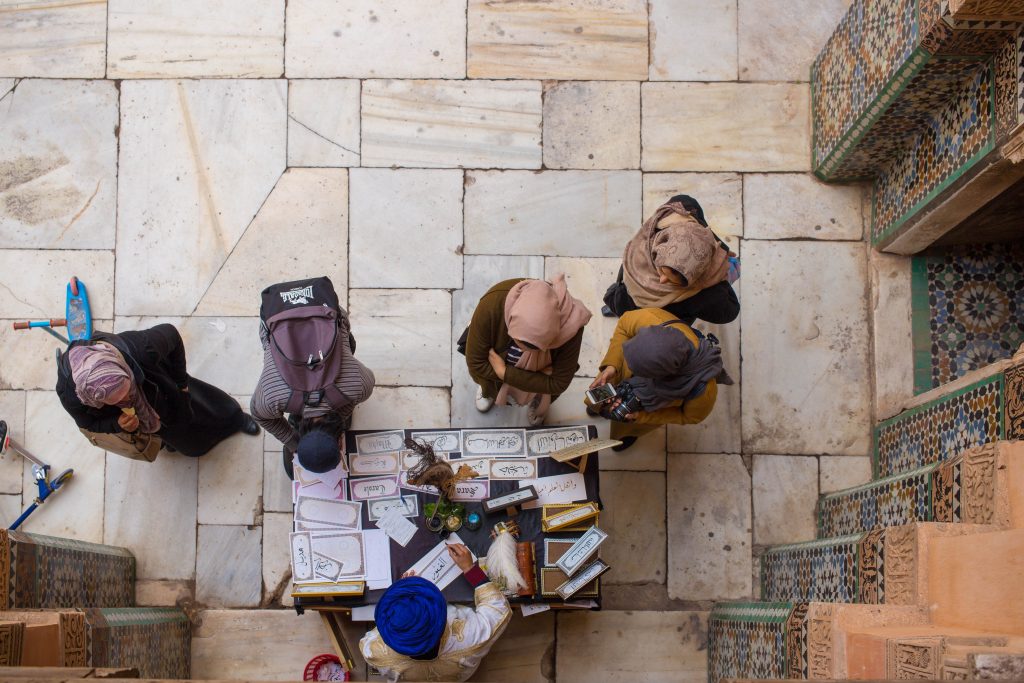newest article

Complimenting Equals
20 July 2018 6:48 am // Written by Nur Fadhilah Binte Wahid;
For decades, feminist advocates have lashed out against the Islamic civilization with accusations that Islam oppresses women and their rights. Walking down the aisles of major bookstores would reveal various titles labelling the hijab as a constant suspect of a woman’s loyalty, or outright proclamations that women in Islam are being treated as sub-humans. Authors of such questionable books need only include a picture of a niqabi with sad eyes on their covers in order to peddle them as bestsellers!
However, what many of these feminists fail to differentiate is the distinction between Islam as a religion sent by God, and the “Islamic State” that is moulded and administered by man. They thus wrongly point the blame towards the religion, and not the people who legislate and carry out gender-biased laws in self-proclaimed Islamic countries or caliphates such as ISIS. Islam is carelessly pinned as a means of justification even though the subjugation of women goes against the spirit of Islam.
In fact, if the Prophet Muhammad ṣalla Allāhu ʿalay-hi wa-sallam lived today, he would, without a doubt, put an end to much of the Muslim women’s collective suffering, just as he had done during his time.
Gender Equality in the Qur’an
Sayyidatina ‘A’isha radhi Allāhu ʿanha famously said that the Prophet ṣalla Allāhu ʿalay-hi wa-sallam’s character was the Qur’an. And the Qur’an has this to say about the status of women:
“O mankind! Behold, we have created you all out of a male and a female, and have made you into nations and tribes, so that you might come to know one another. Verily the noblest of you in the sight of God is the one who is most deeply conscious of Him. Behold, God is all-knowing, all-aware.” (Qur’an 49:13).
From this, it can be seen that mankind — regardless of gender, color, or any other outward differences — are all the same in Islam; the only thing that separates them is the level of consciousness of God (taqwa), which both men and women can strive for equally.
Furthermore, if we travel back in time to the period where the Qur’an was just revealed to the Prophet Muhammad ṣalla Allāhu ʿalay-hi wa-sallam, we find that the Qur’an was the force behind women getting considerable freedom, rights that protect their interests, and the ability to participate in the public and religious arena. This was a huge turnaround from the period of ignorance in pre-Islamic Arabia in which women were pretty much treated as objects; a source of economic burden and humiliation for the families.
In fact, Islam protects the right of women from the get-go, even as an infant, as revealed in the Qur’anic verse, “Hence, do not kill your children for fear of poverty: it is We who shall provide sustenance for them as well as for you. Verily, killing them is a great sin.” (17:31) The verse actually refers to the pre-Islamic tradition in Arabia of burying unwanted female children alive! Logically, if Islam condemns the female gender, it would make no sense for God to strictly forbid the killing of female infants in favour of males, changing a centuries old tradition at once.

Gender Roles & Women’s Rights
In a Qur’anic society, men and women are commanded to depend on one another, as per the verse, “… they are the garment for you, and you are a garment for them.” (2:187). Women and men are also commanded to work with each other, complementing one another for the greater good. This means that each would have a different gender role to play, contradicting the feminism cause to strive for the two to be identical in their roles. For example, men are assigned to more economic responsibilities (Qur’an 2:233, 2:240; 4:34) while women are assigned to roles that are related to child bearing and domestic issues (2:233; 7:189). Instead of the unisex society that feminism proposes, a dual-sex society is upheld in Islam, instilling cooperation between sexes as opposed to competition.
As for women’s rights, one will find in the Qur’an and Hadith a perfect system that upholds the rights of women while recognizing the difference between men and women in form and function.
It will also be worthwhile to note that in many instances, the rights given by Islam would strike feminists as being favourable to women and in-line with some of the beliefs they hold. Amongst others, that men and women are equal in all areas including personal rights, human rights and civil rights in terms of dealings and wealth.
Legally, women are allowed to trade, to contract and to earn, and to keep these earnings to themselves (4:32). Women are also allowed a share of the inheritance (4:7) and this equality is even carried over in the criminal penalties: if women commit civil offences (5:41), the penalty is the same of that of men’s. Also, it is stated in a hadith that even slave girls should be educated, a command that many Islamic societies around the world fail to carry out.
This equality across the board is even more glaring when we look into the example of Sayyidatina A’isha radhi Allāhu ʿanha, the Prophet’s wife.
During her life, Sayyidatina A’isha had advised civil disobedience and led troops during war, as well as made political, legislation and religious decisions crucial to the ummah. So central was her role that Sayyidatina A’isha alone contributed to more than 15 percent of the basis of the religious law (shariah) in Islam. If Islam truly dismisses women, the wife of the Prophet Muhammad ṣalla Allāhu ʿalay-hi wa-sallam would probably be on the wanted poster of every holier-than-thou “Islamic State” there is today.

Complimenting Equals
Although Islam does not support the feministic idea of men and women being identical in all aspects, it brings forth a notion of equality between the two that is more favourable than what is proposed.
Instead of fighting for a sameness that is impossible due to the genetic and functional differences between men and women, feminists should learn to embrace themselves as they are; understanding and accepting the roles that have been naturally allocated to women at the moment of their coming into this world. Men and women alike stand to gain a more productive relationship with cooperation and co-existence being the main focus.
As for the ailments and bias that Muslim women face today in the very hands of those who are supposed to care for them, the lessons in the Qur’an and Hadith are clear in the stand that these are unlike what the Prophet Muhammad ṣalla Allāhu ʿalay-hi wa-sallam preached.
However, until the day feminists understand the meaning of true equality between genders, and until the day self-righteous men stop bending the messages of Islam to conform to their desires, sad eyes will continue to peek from bookshelves… women who cry not due to Islam, but with Islam; both unfortunate, collateral damage in the war of power around the world today.
Note: The publication copyright of this article belongs to Pergas. No part of this article may be reproduced or stored in a retrieval system or transmitted in any form or by any means, electronic or otherwise without the permission of Pergas. Permission is only given for sharing this article via its original URL.
Opinions expressed in this article belong to the author and do not represent Pergas’ official stand unless if Pergas explicitly says so.
References
- Ed. Christina Fisanick, Opposing Viewpoint Series: Feminism (USA: Greenhaven Press, 2008)
Chris Beasley, What Is Feminism, Anyway? (Australia: Allen & Unwin, 1999) - Erika Cudworth, Tim Hall and John McGovern, The Modern State: Theories and Ideologies (Great Britain: Edinburgh University Press Ltd, 2007)
- Muhammad Asad, The Message of the Qur’an: Translated and Explained by Muhammad Asad (Gibraltar: Dar-Al Andalus, 1980)
- Lamya Al-Faruqi, Women Muslim Society and Islam (USA: American Trust Publications, 1408/1988)
- Ed. Haideh Moghissi, Women and Islam: Critical Concepts in Sociology (USA and Canada: Routledge, 2005)
- Ed. Mahnaz Afkhami, Faith and Freedom: Women’s Human Rights in the Muslim World (USA: Syracuse University Press, 1995)
- Fatima Mernissi, Women’s Rebellion and Islamic Memory (UK and New Jersey: Zed Books Ltd, 1996)
- Dr. Muhammad ‘Ali al-Hashimi, The Ideal Muslim Society: As defined in Quran and Sunnah (Riyadh: International Islamic Publis
ISLAMIC PERSPECTIVE SOCIETY ISLAM AND WOMEN CONTEMPORARY ISSUES










